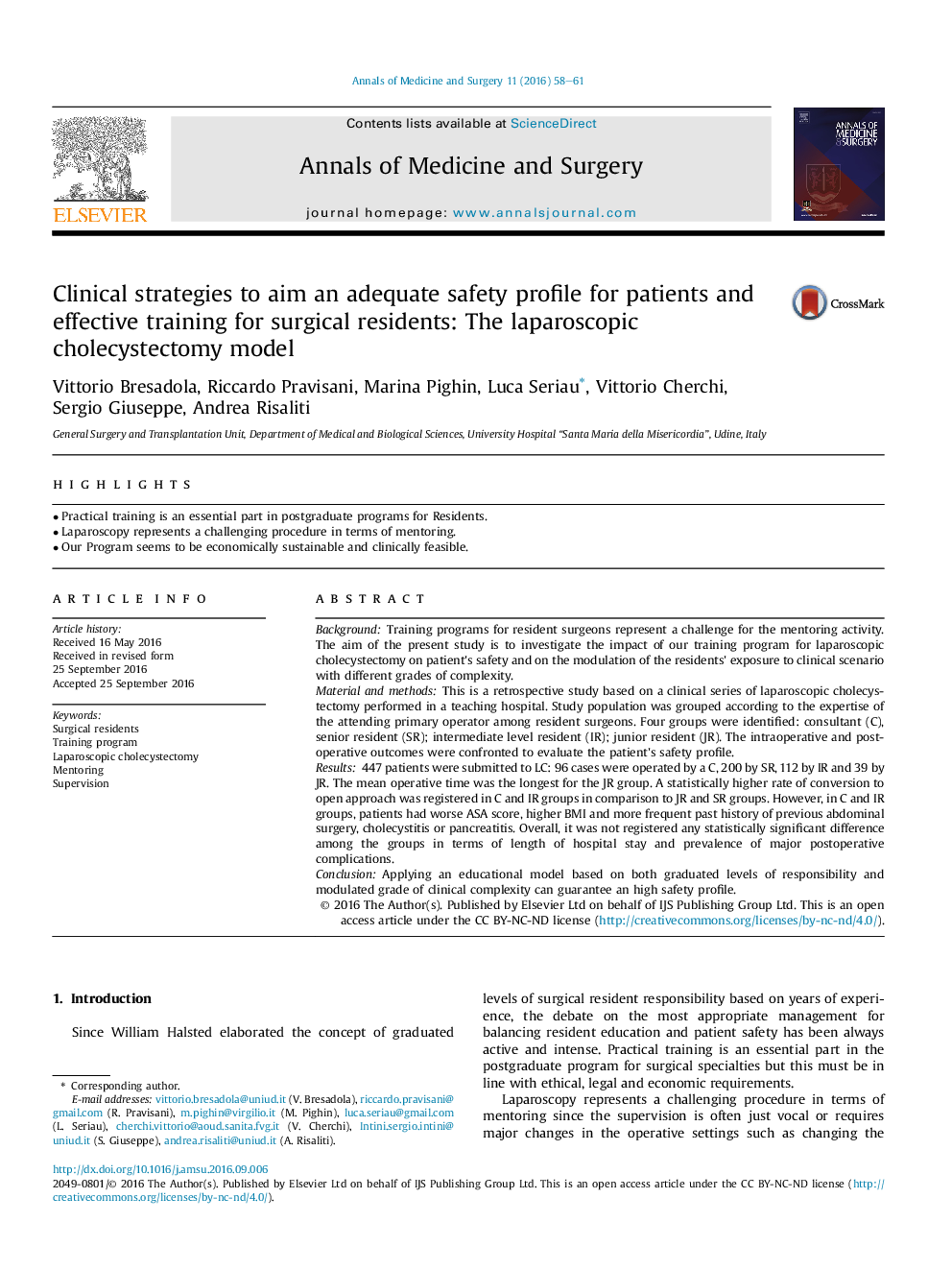| Article ID | Journal | Published Year | Pages | File Type |
|---|---|---|---|---|
| 4195108 | Annals of Medicine and Surgery | 2016 | 4 Pages |
•Practical training is an essential part in postgraduate programs for Residents.•Laparoscopy represents a challenging procedure in terms of mentoring.•Our Program seems to be economically sustainable and clinically feasible.
BackgroundTraining programs for resident surgeons represent a challenge for the mentoring activity. The aim of the present study is to investigate the impact of our training program for laparoscopic cholecystectomy on patient's safety and on the modulation of the residents' exposure to clinical scenario with different grades of complexity.Material and methodsThis is a retrospective study based on a clinical series of laparoscopic cholecystectomy performed in a teaching hospital. Study population was grouped according to the expertise of the attending primary operator among resident surgeons. Four groups were identified: consultant (C), senior resident (SR); intermediate level resident (IR); junior resident (JR). The intraoperative and postoperative outcomes were confronted to evaluate the patient's safety profile.Results447 patients were submitted to LC: 96 cases were operated by a C, 200 by SR, 112 by IR and 39 by JR. The mean operative time was the longest for the JR group. A statistically higher rate of conversion to open approach was registered in C and IR groups in comparison to JR and SR groups. However, in C and IR groups, patients had worse ASA score, higher BMI and more frequent past history of previous abdominal surgery, cholecystitis or pancreatitis. Overall, it was not registered any statistically significant difference among the groups in terms of length of hospital stay and prevalence of major postoperative complications.ConclusionApplying an educational model based on both graduated levels of responsibility and modulated grade of clinical complexity can guarantee an high safety profile.
